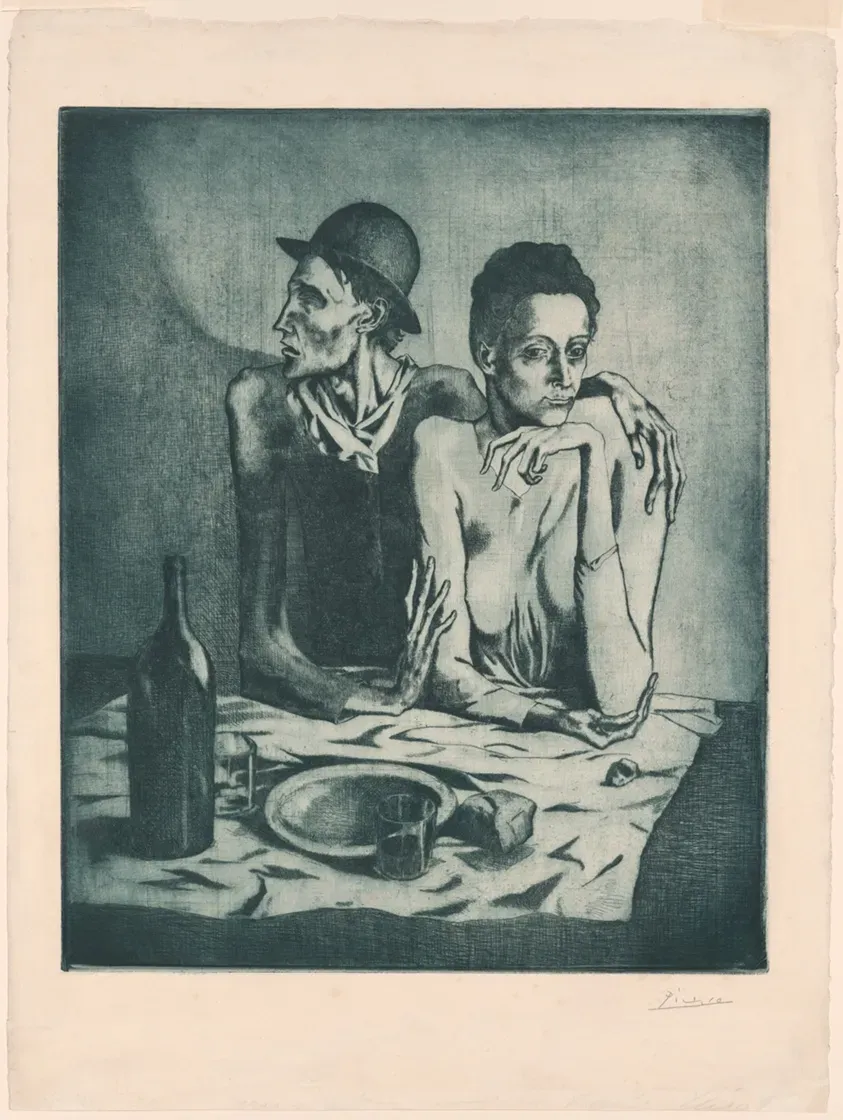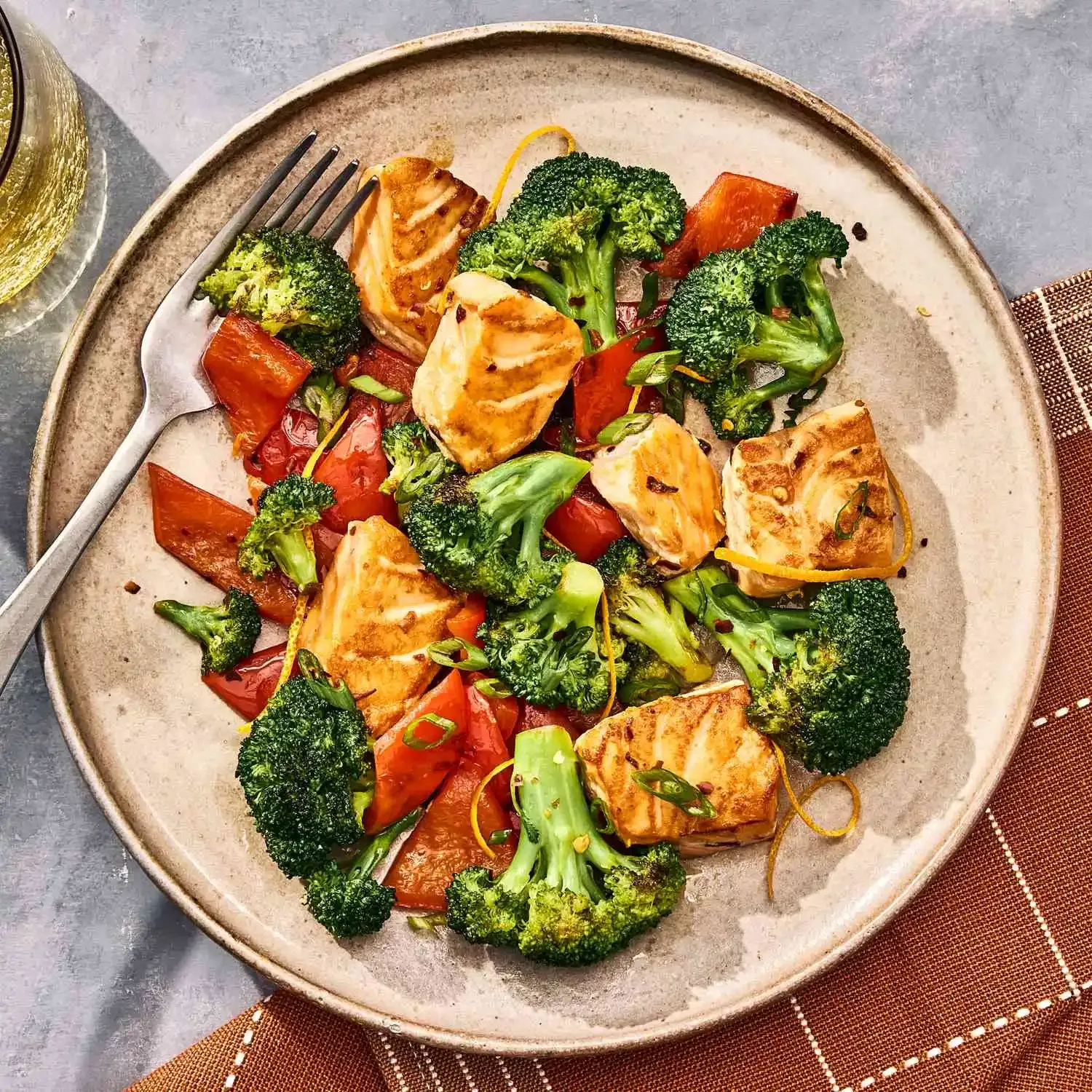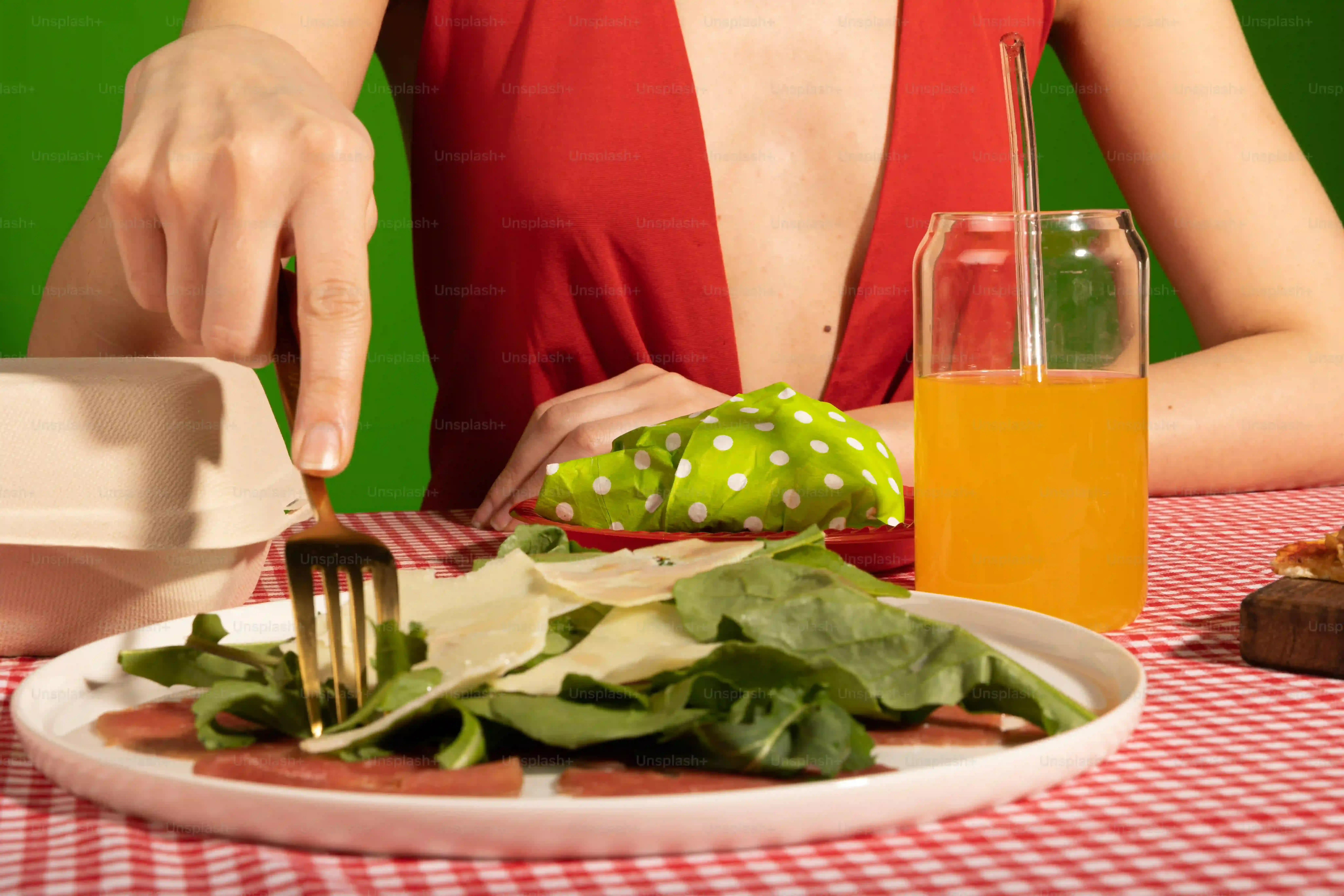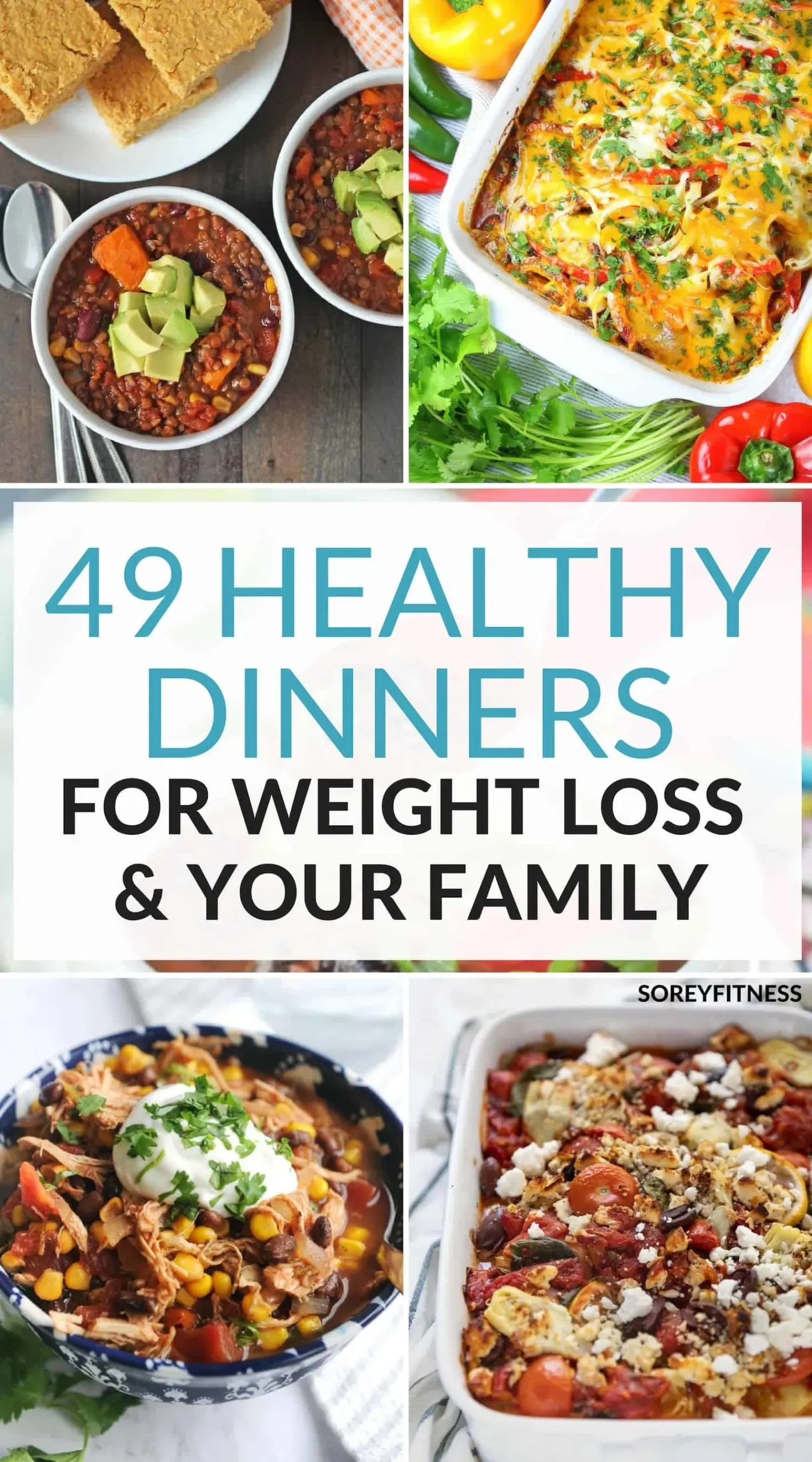Table of Contents
Trying to figure out what to eat for dinner when you're trying to shed some pounds can feel like navigating a minefield. Salad again? Steamed chicken? It's easy to get stuck in a rut or just feel completely overwhelmed by conflicting advice. You're probably wondering, genuinely, what is a healthy dinner for weight loss that doesn't taste like cardboard and leave you raiding the pantry an hour later? It’s a fair question, and frankly, the internet is full of noise about restrictive diets and "superfoods" that just aren't sustainable for real life.
So, What Exactly is a Healthy Dinner for Weight Loss?

So, What Exactly is a Healthy Dinner for Weight Loss?
Beyond the Sad Salad Stereotype
Let's be real. When most people picture a "healthy dinner for weight loss," they envision a plate that looks like punishment. Think a single, lonely chicken breast next to a mountain of plain lettuce. While low in calories, that's not a sustainable or enjoyable way to eat, and frankly, it’s setting yourself up for failure and late-night snack attacks. A truly effective weight loss dinner isn't about deprivation; it's about intelligent composition. It needs to provide nutrients, keep you feeling full for more than an hour, and actually taste good enough that you don't resent eating it.
Forget the idea that you need exotic ingredients or complicated recipes. What defines a healthy dinner for weight loss is its balance of macronutrients: protein, healthy fats, and complex carbohydrates, primarily from vegetables. This combination works synergistically. Protein is king for satiety and muscle preservation. Fiber from veggies and smart carbs fills you up without loading on calories. Healthy fats help with nutrient absorption and keep you satisfied. Getting this mix right means you're less likely to feel deprived or experience blood sugar crashes that lead to cravings shortly after eating.
- Ample Non-Starchy Vegetables (think leafy greens, broccoli, peppers)
- Lean Protein Source (chicken, fish, tofu, beans)
- Moderate amount of Healthy Fats (avocado, nuts, seeds, olive oil)
- Small portion of Complex Carbohydrates (quinoa, brown rice, sweet potato - optional depending on calorie goals)
It's About Fueling, Not Just Filling
A healthy dinner for weight loss isn't just about hitting a calorie target; it's about the *quality* of those calories. Empty calories from refined sugars or excessive unhealthy fats do little to satisfy hunger or provide essential nutrients. They might fill your stomach temporarily, but your body still signals for more food because it's missing what it actually needs. Prioritizing nutrient-dense foods means you get more bang for your caloric buck, providing vitamins, minerals, and fiber that support overall health while you're working towards your weight goals. This approach shifts the focus from simply eating less to eating better, making the process feel less like a chore and more like nourishing yourself.
Building Your Plate: Key Components of a Weight Loss Dinner

Building Your Plate: Key Components of a Weight Loss Dinner
The Winning Formula: Protein, Veggies, and Smart Fats
Alright, so you get the sad salad thing is a no-go. Now, let's actually build a plate that works and doesn't make you want to cry into your napkin. Think of your plate as prime real estate. You want to prioritize the things that give you the biggest bang for your buck, which means filling at least half of it, maybe even two-thirds, with non-starchy vegetables. These are your leafy greens, your broccoli florets, bell peppers, zucchini – basically anything that isn't a potato, corn, or peas. They're packed with fiber and nutrients but low in calories, creating volume without the caloric load. Next, a solid portion of lean protein is non-negotiable. Chicken breast, fish, tofu, lentils, or beans are your friends here. Protein is the MVP for satiety and helping preserve muscle mass while you lose fat. Finally, don't fear healthy fats. A drizzle of olive oil, a quarter of an avocado, or a sprinkle of nuts provides flavor, helps you absorb fat-soluble vitamins, and keeps you satisfied longer. A small portion of complex carbs like quinoa or sweet potato can be included depending on your activity level and specific calorie goals, but the bulk should be veggies and protein.
Easy, Healthy Dinner Ideas for Weight Loss

Easy, Healthy Dinner Ideas for Weight Loss
Simple Meals That Don't Require a Culinary Degree
so you know the components, but putting it all together after a long day feels like another chore, right? The good news is, creating Easy, Healthy Dinner Ideas for Weight Loss doesn't mean spending hours in the kitchen or needing fancy equipment. Think simple stir-fries packed with whatever veggies are in your fridge and a lean protein like shrimp or chicken, seasoned with soy sauce (or tamari) and ginger. Another go-to is baked fish with roasted broccoli and bell peppers – minimal prep, maximum flavor and nutrients. Sheet pan meals are your best friend here; just toss protein and veggies with some olive oil and herbs on a baking sheet and let the oven do the work. Lentil soup or chili is fantastic for batch cooking, providing filling, fiber-rich meals for several nights. Don't underestimate the power of a good omelet or scramble loaded with spinach, mushrooms, and a little cheese – quick, satisfying, and protein-packed. The key is relying on fresh, whole ingredients and simple cooking methods.
Common Mistakes Sabotaging Your Weight Loss Dinners

Common Mistakes Sabotaging Your Weight Loss Dinners
Ignoring Portion Sizes
Alright, let's talk turkey, or rather, too much turkey. One of the biggest traps folks fall into is thinking that just because something is "healthy," you can eat unlimited amounts. News flash: calories still count, even if they come from quinoa and avocado. I've seen people load up plates with what looks like a balanced meal, but the sheer volume pushes the calorie count sky-high. A healthy dinner for weight loss isn't just about *what* you eat, but *how much*. That generous pour of olive oil? Delicious, yes, but it adds significant calories quickly. Those nuts you sprinkled on top? Same deal. You've got to be mindful of portion sizes, especially with calorie-dense items, even the healthy ones.
Drinking Your Calories
You crushed dinner, sticking to your protein and veggies like a champ. Then you wash it down with a giant glass of juice, a sugary soda, or, dare I say, a couple of glasses of wine. Bam. You just added hundreds of calories that do absolutely nothing to fill you up. Liquid calories are sneaky saboteurs. They don't trigger the same satiety signals as solid food, so you consume them without feeling full, completely undermining your healthy dinner effort. Stick to water, unsweetened tea, or black coffee with your meal. It’s boring, I know, but your waistline will thank you.
- Skipping protein
- Eating too late
- Not enough fiber
- Adding creamy sauces
- Mindless eating (watching TV, scrolling)
Believing "Clean Eating" Means Unlimited Eating
This ties back to the portion issue, but it's a mindset problem. The "clean eating" trend, while having good intentions, sometimes leads people to think that as long as food is organic, whole-grain, or free of artificial stuff, it's a free-for-all. Sorry to burst the bubble, but a homemade organic cookie still has calories. A massive bowl of brown rice and beans, while nutritious, can easily exceed your calorie needs if you're not measuring. It's not about moralizing food; it's about energy balance. Your healthy dinner for weight loss needs to fit within your daily calorie budget, regardless of how "clean" the ingredients are. Be honest about how much you're actually consuming.
Making Healthy Dinners a Habit, Not a Hurdle
So, we’ve covered the basics of what is a healthy dinner for weight loss: a balanced mix of protein, fiber, and healthy fats that leaves you feeling full and satisfied, not deprived. It's less about finding one magical meal and more about consistently making smart choices that fit your life and your plate. It won't always be perfect, and that's fine. The goal is progress, not some unattainable ideal. Focus on building sustainable habits, keep experimenting with flavors and ingredients, and remember that dinner should nourish you in every sense, making your weight loss journey feel less like a chore and more like, well, just eating dinner.